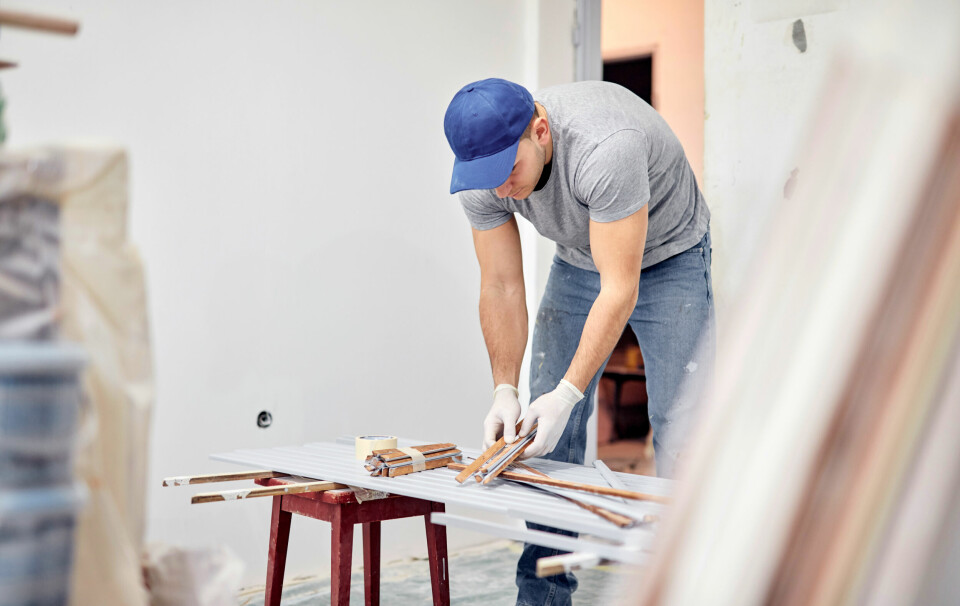-
Workers in France can take 17-day break using only eight days of leave in 2026
Favourable calendar for public holidays makes extended May break possible, with five guaranteed long weekends throughout year
-
David Hockney among France’s New Year honours list
Former Normandy resident awarded second grade of honour
-
Warnings over off-piste skiing in French Alps after American dies
Skier hit head on exposed rock during lesson with instructor
France to begin human trials on major vaccines
The trial project, Covirevac, will test three vaccines overall to check their effectiveness and safety on humans - although the Pfizer vaccine is not included

Covid-19 vaccine tests are to begin on French volunteers within days, research agency Inserm has confirmed, with 41,000 volunteers signing up.
The trials will test the vaccines before they are given to the general public, and will investigate their effectiveness and how well humans tolerate them.
The eventual results of the tests will be in addition to those already obtained around the world in other trials and for other vaccines.
Read more: 20,000 volunteer for Covid-19 vaccine trials in France
Two months after launching the trial platform Covireivac, Inserm has now signed agreements with three vaccine projects; AstraZeneca-Oxford University, Janssen (of pharmaceutical giant Johnson & Johnson), and US group Moderna.
The trials are set to begin within 10 days, pending the “green light” from national drug safety agency l’Agence nationale de sécurité du médicament (ANSM), and the safety committee le Comité de protection des personnes.
Professor Odile Launay, infectious disease specialist at the Cochin (AH-HP) hospital in Paris, and who is coordinating the platform, said “it should not be too long” before trials start.
The AstraZeneca and Janssen projects have already begun their third and final testing phase on tens of thousands of volunteers worldwide, while Moderna is currently being tested on around 30,000 volunteers in the US.
In France, AstraZeneca and Janssen will use 1,000 French volunteers; while the Moderna trial will begin at phase two only, with 180 volunteers by late-December or early-January.
Volunteers will receive either the real vaccine or a placebo. They will then go about their normal lives, and researchers will check that if they become infected with Covid, if they develop a severe form the illness, and also if they have any negative side-effects.
Professor Launay said: “We study them immediately after vaccination and then we see them again.
“After that, there is a longer period of surveillance, which lasts between one to two years, where we ask participants to tell us everything that happens to them.”
Moderna to be tested on older people
A third trial will begin in one month, but this time with participants who are aged 70 or over. These volunteers will test the US Moderna vaccine, with a view to seeing if it protects older people better than others.
Professor Jean-Daniel Lelièvre, head of infectious diseases at the Henri-Mondor hospital in Créteil, told news source Le Figaro: “As we age, our immune system is generally less good. As age is a major risk factor for a severe form of Covid, it is paramount to study this population.”
The trials come as several countries - including the UK and US - have announced that they will start administering Covid-19 vaccines within days.
The UK especially has said that it is set to roll out the Pfizer/BioNTech vaccine as soon as possible, but this vaccine is not set to be included in the French trial platform, as the laboratories did not give permission for other laboratories to test it before putting it on the market.
Professor Launay said: “We regret that a little, but we are probably not going to put a trial [of the Pfizer vaccine] in place once it has received approval for use on the market.”
Interpol warns of fake vaccines and tests
This week, international police organisation Interpol has also warned the European Union against the proliferation of fake vaccines being sold online by organised crime networks.
In a statement, secretary-general of Interpol, Jürgen Stock, said: “The pandemic has caused unprecedented predatory, opportunistic criminal behaviour” including the “falsification and theft of flu vaccines and Covid-19 vaccines”.
He said that member states must “guarantee the security of the chain of procurement” for vaccines, and coordination between law enforcement and health authorities.
Mr Stock also warned against “fake websites” and “false remedies”, and called for vigilance when “international travel gradually restarts”.
It said that criminal networks will probably step up production, and increase the distribution of “non-authorised, falsified tests”. Interpol has already identified “3,000 websites associated with online pharmacies that are suspected of selling illegal medicines and medical devices”.
Of these sites, around 1,700 contain online threats - such as malware, phishing, or spam viruses.
Interpol therefore advises everyone to beware of offers that are too good to be true and to “always check the latest health advice about Covid-19 with national health authorities or the World Health Organisation (WHO)”.
Related stories
France poll: 46% would decline Covid vaccination
























